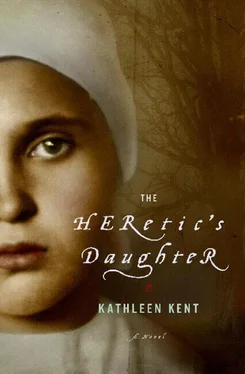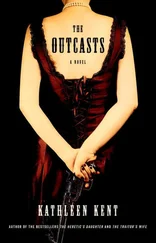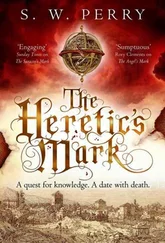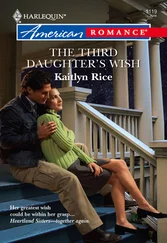I gave her long hateful looks even when she put Iron Bessie to my buttocks until I screamed. Living with the Toothakers had softened me, and so, at first, I bleated like a lamb at slaughter when she hit me. In time I learned to make a jail of my teeth for I would rather have died than cry out to her. The only truce to my feelings came late at night when I stood alone, running my fingers along the carved rim of the spinning wheel, wishing for my grandmother’s gentle touch.
AS THE DAYS passed I tried to bring the Toothakers alive to my brothers. I told them the stories I had heard in Uncle’s house about Indian raids and the battles of militiamen, but my recounting lacked the richness and magic of Uncle’s telling. Richard would sit and smirk and Tom pretended to listen, but he often fell asleep after the evening meal. The stories gave Andrew nightmares and he would wake screaming in the night, his arms and legs waving about. Mother made me stop then, saying Uncle could run a forge with the air from his lungs and fill a well with curdling nonsense. In the space of a few months, I had become a stranger to my family, my only companion a demanding Hannah, two months shy of her second birthday, who balked at being held or fed by anyone but me. We had been told to stay within a gunshot’s distance of the house, as the Wabanakis had been sighted in settlements south of Cambridge. The Reverend Dane had come with the news that the smallpox was ravaging whole tribes and the braves had come looking for young colonists, boys and girls, to fill their ranks. Grown colony men were knifed and bludgeoned, as were women past childbearing age. Old grandmothers, infants in arms, and children too weak or young to keep pace with the retreating warriors were cut down and left for the ravens.
In Andover and Billerica in the space of a few days, colonnades of sharpened pikes were built around manned towers to defend against stealthy and silent attacks. One guardsman, so unnerved by the thought of a raid, shot and killed his own son as he gathered firewood not twenty paces from the tower. Father shook his head and said the miracle was that such a blustering farmer had been able to hit the boy at all. Young women carried sharp blades within their bodices and aprons, not to kill a raider, but to open their own veins rather than submit bodily to their abductors. Young children were tied with string to their mothers so they couldn’t wander off, and boys of serviceable age were given over to the practice of deadly combat using only sticks, wooden hoes, and scythes.
The only salvation left for the captured was to be ransomed by barter by the relatives left living. There was no forced rescue ever, for the Wabanakis had been born of the fomenting wilderness and knew every mountain pass, every river, and forest as well as the hairs on their own arms. The few who were brought back after living for a time in those dark, obscure places were wild and strange even to their own families. One young woman, returned to her kin in Billerica, had to be tied to her bed, so often did she try to escape back to her abductors. When no family was left, a redeemed captive could only be indentured to those who paid the ransom.
Mercy Williams had been born in Topsfield and had moved with her family to the so-called Eastward, the wild territory to the far north and east of the colonies. Her parents and all her brothers and sisters had been killed by the Wabanakis and she had been taken captive into Canada. Governor Phips ransomed her along with a dozen others and sent them back to their families or as indentured servants to the homes of strangers. With the exchange of twenty muskets she had become a laborer and would have to work for five years to pay back her rescuers.
Father had wanted a manservant to help on our farm, but we could not afford to pay the indenture for a man, so we settled for an orphan girl nobody else wanted. It would soon be apparent why Mercy Williams’ indenture came on the cheap.
Grandmother had owned a comfortable bit of land in Andover, close to four acres on fertile ground, and we would need help in the spring, rendering the fields ready for planting. Mother had earned a small inheritance, a bag of coins placed into her hands at Grandmother’s deathbed, and with it a chance to buy more seed. We would plant on the first warm days a half acre of hay and an acre each of corn and wheat. With a sturdy plow and an ox, two grown men could plow an acre in one day but the land of Essex County was peppered with stones as plentiful as the mussels at Casco Bay. The rocks could defeat the sturdiest plow, and furrowing could be done only after more trees had been cleared with a felling axe, the brush cleared with a billhook and fire. Then the heaviest stones, half buried, could be pulled from the dirt.
The first week of May, Mercy arrived at our house, following Father as he bent his tall frame to clear the door. She stood with her arms crossed, giving us as much of a once-over as we gave her. Mother took one look at her and ordered her outside to wash and sent me along to check her head for nits. I filled a pot with stream water while she sat on the ground like a man, watching me, her knees bent and spread far apart. She fanned herself with her apron and I was shocked to see she was not wearing a shift beneath her skirt.
Her legs were as brown as her arms, and when she caught me staring, she pulled her skirt higher over her thighs. Father had spoken of her as still being a girl, but she had corded muscles like a boy and a gaze that raised the hackles on the back of my neck. Like Lazarus come back from the dead, she had seen what I had only imagined through the stories of Uncle. She had survived the long march to Canada as well as her own memories of the journey. My curiosity at that moment was greater than my decorum over her shame, and I asked her, “How old are you, then?”
She looked at me and smiled a crooked smile, as though one side of her mouth was palsied, saying, “Seventeen or so.” She turned her head and spat through her teeth, mouthing words that did not sound to be English. I handed her the washing pot and a lump of harsh lye soap, which she sniffed and put aside. She rolled up her sleeves and roughly scrubbed at her arms and face, using only the water. The skin on her face was pitted with pox scars, and, despite the washing, she had a smell about her of something sour, like milk gone bad or calfskin poorly tanned. The hair on her scalp was sparse and there was not much to comb through for the lousing. I thought she had been scalped, but when I later asked Richard about it, he told me that had that been so, she would have been missing the top part of her skull as well.
As I teased out the tangled hair, looking for crawling things, I asked, “How long were you with the Indians?”
“’Bout three years’ time, mebbe more,” she answered, scratching the back of her neck. The comb caught and pulled at a knot and her fingers wrapped round my wrist as quick as a corn snake. She took the comb from me and set it aside. She then reached out and fingered a bit of my own hair that had spilled from my cap. I felt pity for her at that moment and smiled to show my compassion. She smiled back at me in a one-sided grimace and said, “But now I am home, aren’t I?” I followed her back to the house and she whistled some bit of song. I remembered Mother once saying a whistling woman and a cackling hen come to no good end, but I was lonely and looked for friendship wherever it was offered.
That evening at supper we watched with fascination the way she funneled food into her mouth. She ate with her hands without spilling one crumb and guarded her plate as though it would be taken away at any moment. When we cleared the table, she dropped a plate and broke it. Mother gave her the eye that we had all come to fear, but Mercy picked up the pieces without seeming to notice. Afterwards we were sent to bed. Father had built a separating wall in the common room so that Mercy and I could have our own little room. Richard, Andrew, and Tom slept in the garret above, and Hannah slept on a low cot beside Mercy and me. Father had also built a new rope bed for himself and Mother with a longer frame, as Grandmother’s bed was painfully short for his legs, and had given us the old bed. The first night we lay together, Mercy, without asking, grabbed Margaret’s poppet out of my hands and looked at it as though it were a piece of sweet bun. She roughly turned the doll this way and that, holding it with fingers chewed down to the quick.
Читать дальше












